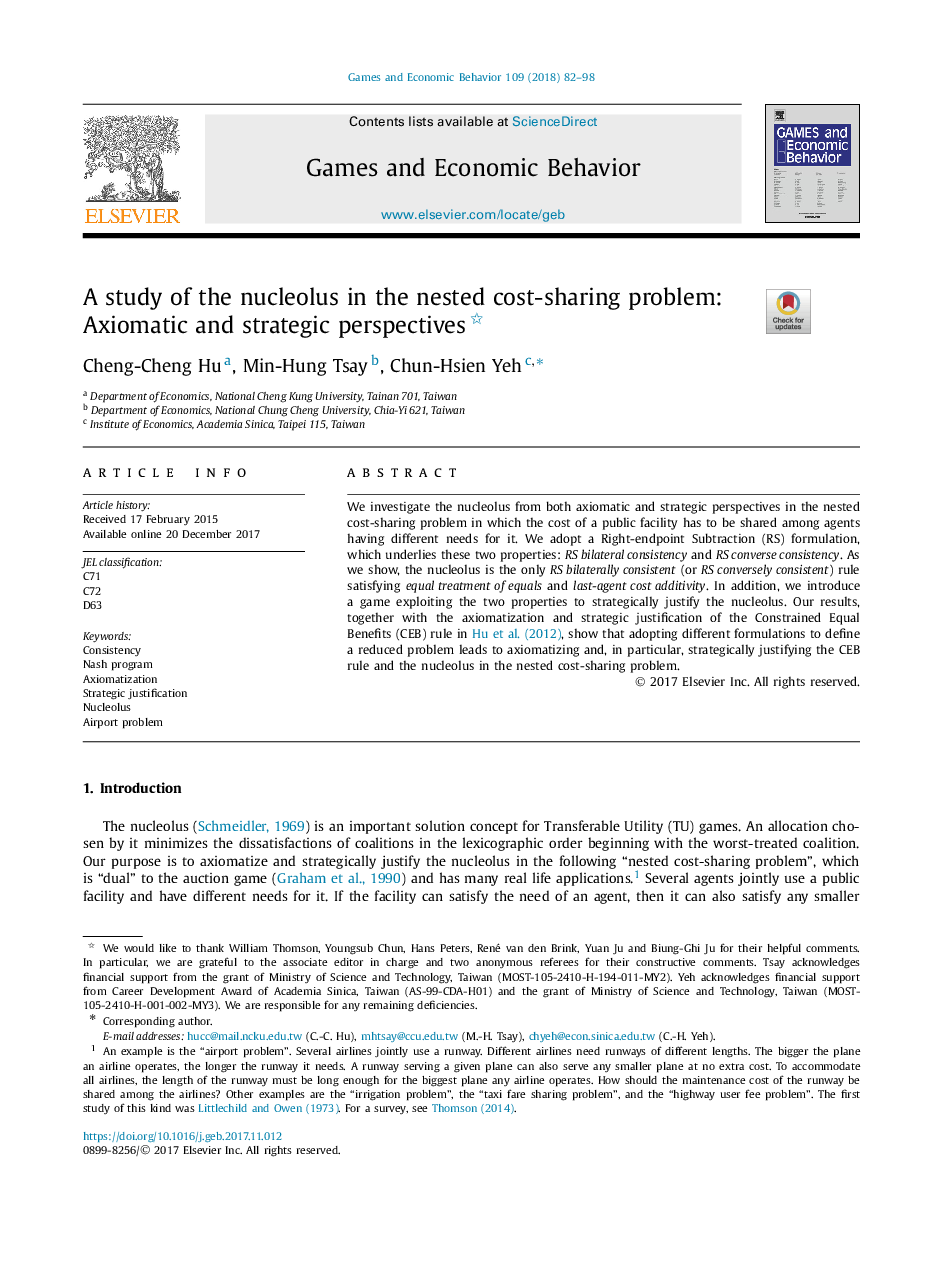| Article ID | Journal | Published Year | Pages | File Type |
|---|---|---|---|---|
| 7352844 | Games and Economic Behavior | 2018 | 17 Pages |
Abstract
We investigate the nucleolus from both axiomatic and strategic perspectives in the nested cost-sharing problem in which the cost of a public facility has to be shared among agents having different needs for it. We adopt a Right-endpoint Subtraction (RS) formulation, which underlies these two properties: RS bilateral consistency and RS converse consistency. As we show, the nucleolus is the only RS bilaterally consistent (or RS conversely consistent) rule satisfying equal treatment of equals and last-agent cost additivity. In addition, we introduce a game exploiting the two properties to strategically justify the nucleolus. Our results, together with the axiomatization and strategic justification of the Constrained Equal Benefits (CEB) rule in Hu et al. (2012), show that adopting different formulations to define a reduced problem leads to axiomatizing and, in particular, strategically justifying the CEB rule and the nucleolus in the nested cost-sharing problem.
Related Topics
Social Sciences and Humanities
Economics, Econometrics and Finance
Economics and Econometrics
Authors
Cheng-Cheng Hu, Min-Hung Tsay, Chun-Hsien Yeh,
